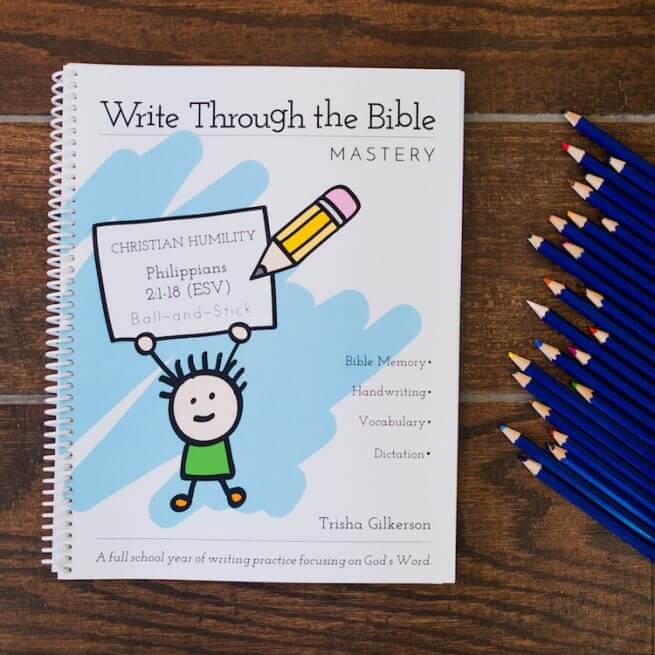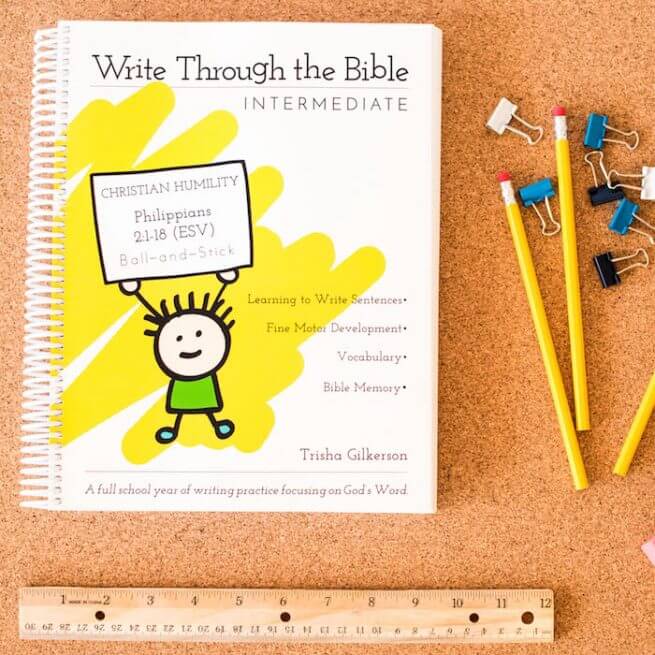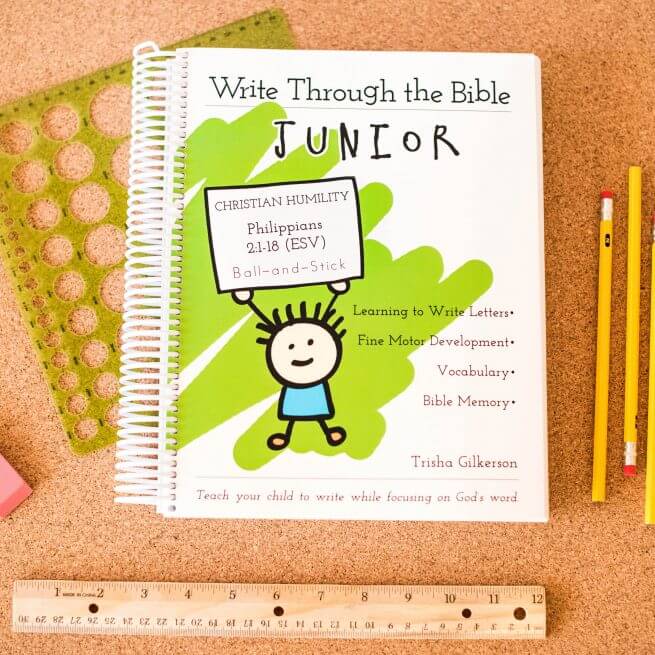Homeschooling—like any kind of schooling—is not just an educational decision you make for your children. It is a lifestyle decision you make for your family.
Many parents who like the benefits of homeschooling also dread the potential cost to their personal time. Admittedly, there’s something freeing about handing your kids over to professional educators 1,100+ hours a year so you can be free to do…well, whatever you want.

If you’re considering homeschooling, but you’re just not sure about how it will tax your schedule, the following considerations are important to understand.
Consideration #1: Yes, homeschooling takes time.
There’s no way around it: when you are your child’s educator, it will take time to not just teach them but also plan how you’re going to teach them.
You may spend hours pouring over different curricula, reading homeschooling blogs, and researching different educational methods and philosophies.
You’re also likely to run into unforeseen challenges along the way—from organizing your growing collection of curricula to dealing with a particularly obstinate child.
While there are ways to work smarter (not longer) as your child’s educator, there’s no way to avoid the reality that homeschooling takes time.
Consideration #2: Is teaching a liability or a blessing?
Before we start asking about ways to cut corners on the amount of time it takes to homeschool, it is best to start with our own attitudes. Do we see extra time with our children as a liability or a blessing?
I don’t ask this question to guilt you—there’s nothing wrong with taking time away from our children to be productive, work, visit with friends, pray, read, or enjoy a hobby.
I’m asking more about the pull of your heart. When you think about spending time with your children—or more specifically, educating your children—do you think, “How long will this take so I can get back to my life?” or do you think, “What a blessing that I get to shape the mind and heart of my child?”
I think if most parents are honest, many of us have given into the modern mentality that children are nice accoutrements for a fulfilling life—as long as they don’t cost us too much time or money. In modern societies, children are often seen as a burden, not a blessing, and it is this attitude that may need to be checked before we can make an honest assessment of homeschooling.
Consideration #3: Homeschooling doesn’t have to take over your life.
While homeschooling takes time, it doesn’t have to be an all-consuming activity.
- While the average public schooler in America is in school for 6-7 hours, children who are homeschooled don’t need to spend nearly this long. While a few of the most restrictive states ask you to log your hours, most states are not like this. For some families, the school day may only be an hour or two for younger students, and 3-5 hours for older students.
- The older students get, the more independent learning can be encouraged. Whether its independent reading, math worksheets, or quizzes, many activities do not need your constant oversight. Thanks to online classrooms and video curricula, there are some subjects that you don’t need to be present for at all. For many families, direct parental oversight and involvement involves only a small portion of their homeschool day.
- There are creative ways to homeschool as you go about your normal routine. A lot of school work can be done nearly anywhere—the laundromat, the library, the park, the grocery store, etc. Need to teach budgeting? Take your kid along with you to the store and have them figure out how much you can spend. Learning about nutrition? Have your student pick out the items are the grocery store with the ingredients you want.
Consideration #4: Set aside time without your children.
Homeschooling families don’t need to be around each other 24/7. There are many ways to make time to be alone, even as a homeschooling parent.
- Network with other homeschooling parents to do trade-offs. On a weekly basis, take another family’s children one day and give them your children another day. Not only does this give your children opportunities to build friendships and learn from other adults, it gives you weekly time to decompress.
- Get involved in a homeschool co-op. While you may still have to volunteer some of your time at the co-op, it may also give you a few hours to be without your children for a while.
- Consider using tutors. If there are certain times of day you want to be free, and if there are certain subjects you know you don’t want to teach, consider hiring a tutor to come in once or even several times a week.
- Just like public school families, you can still make use of babysitters to get a night out every now and then.
Leave a comment
Let us know…
- How do you structure your homeschooling experience to give yourself time alone (or just time to do whatever you want)?
- What other objections to homeschooling have you heard?











Visiting from the Modest Mom Blog! I homeschool 10 children, and when I tell people that, they look at me like I’m crazy. Like you said, though, homeschooling does not take as long as most people would assume. I live in PA, which is considered one of the hasrdest states to homeschool in, but we don’t even have to log hours- just days- and to my evaluator, every day is a school day! As for not wanting to spend so much time with our kids, my kids started out in public school, so I was spoiled in that I did have some time during the day with less children in the house. Unfortunately, the disadvantages of having kids in schol far outwighed the advantages. So yes. It was hard for me to have all of my kids home at first, but the more time I spend with them, the more I love it! Now, I prefer to have some of my kids with me all the time. It’s awesome!
Please don’t mind the spelling! I have lots of kids bumping me as I type. 🙂
That’s awesome, Shelly!
Having homeschooled my kids from 1st and 3rd grades all the way through high school, I am now on the other side of my homeschool journey. Adjusting to life without schooling (and without kids in the home) has been difficult. I now have all the time in the world to myself. I try to remind parents with young kids (whether they homeschool or not) that the time they have with their children is fleeting and that before long, they WILL have time for themselves, only they might not be wanting it anymore. In other words, cherish the season you’re in, because all too soon, it will be gone.
Love this! This part really struck a chord with me: I think if most parents are honest, many of us have given into the modern mentality that children are nice accoutrements for a fulfilling life—as long as they don’t cost us too much time or money. In modern societies, children are often seen as a burden, not a blessing, and it is this attitude that may need to be checked before we can make an honest assessment of homeschooling.
My husband and I have often had the same thought about our society in general. Anyways, thanks for the considerations!
This is honestly the hardest part of homeschooling for me: I long for time alone sometimes–time when I’m not ready to pass out at night : ) I’m hardly ever alone in our house, either, which means that things requiring lots of concentration–e.g., emails, paperwork–can pile up.
When I’m not homeschooling or parenting, I’m often working–either home-management work or other home-based work. (I’m procrastinating on that right now, lol!) So when do I get to do what *I* want? I am (still) learning how to “let go” and have my husband, friends, or fellow homeschooling moms give me some time not just for work, but for fun and “me” time. Any ideas or suggestions on how to get that time are welcome!
I will also say that I have a stepdaughter who is now in her 20s, so I have seen firsthand how fast it all goes. What parent of a 20-something would not long for one more day with their kid at age 7 or 8? I feel honored that I get to have these days *every* day right now.
This can be a big one for me, but I have found that it’s all about structure and attitude. In regards to structure, we have rest time each day where everyone gets time to themselves. I have an office that is my space, that no one else can use. And, as to attitude, seeing my kids as blessings really helps. Here’s another example – I sit every morning reading the Bible with my kids, and history read alouds, and I think “I cannot believe that I get to do this. I get to sit on the couch and read with my kids, and it’s my job!” I don’t care that it takes my time. I’d rather be doing that than almost anything else, and I have to pinch myself sometimes to know that it’s real. If I wasn’t at home with my kids I would be at work, and it certainly wouldn’t involve reading history books, or praying with my children.
I agree. Attitude is everything when it comes to this.
I actually had a childless college age woman who works at a local grocery store comment that she doesn’t know how I can stand having them home all the time. I confess I was flabbergasted! I finally managed to say “they’re my children and raising them is my job. We actually all enjoy it.” My older two went to public school for several years and don’t miss it at all. They do an online school and love it. They can get their work done first thing in the morning and be done for the day. My eldest son will occasionally do a weeks worth of assignments in three days so he can have a break.
Yes. My kids love that aspect of homeschooling—and so do I. My younger kids are done before lunch, and my oldest spaces his school work throughout the day so he can take advantage of different extracurricular options during the daytime.
I agree on all the above, and I want to add that from what I hear from friends whose children go to public school, the time commitment is not just for homeschoolers–but in different, less pleasant and more restrictive ways. Public school parents have to spend lots of time helping their children with homework during their already heavily scheduled afternoon/evenings. They also have parent-teacher conferences to go to, and IEP meetings if they have special needs. They may have to make last-minute trips to the store for supplies for projects and stay up late working on those with their children, sometimes with frustration and tears, not to mention disagreement with the instructions or communication problems with teachers. And they have lots of forms to fill out, sign, and return in their children’s backpacks (not that we homeschoolers don’t have our own share of paperwork! ).
Friends whose children attend the local Christian school have on their plates, added to the above, the requirement of taking turns cleaning the classrooms and vacuuming the halls over the weekend and volunteering for the fund-raising food wagon at auctions (welcome to Pennsylvania!).